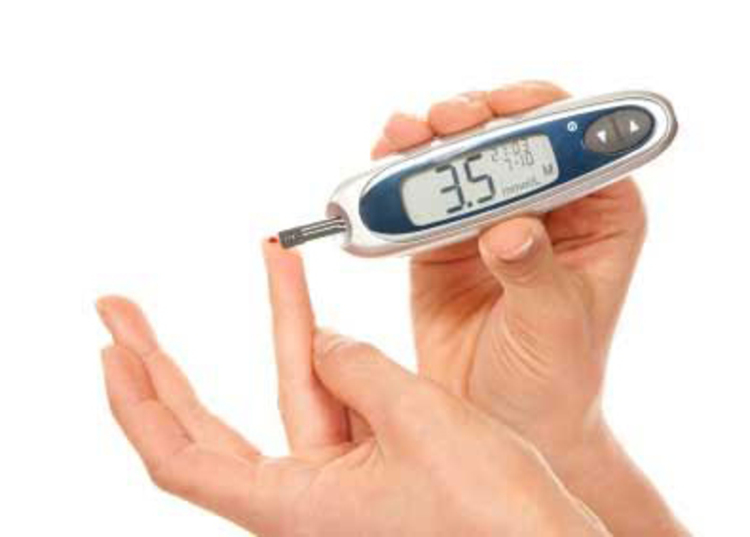Technology boosting healthcare

 Sydney Kawadza Senior Features Writer —
Sydney Kawadza Senior Features Writer —
Technology is taking over our daily lives and it’s becoming very difficult to ignore it.
Enthusiasts are already looking forward to the launch of the self-driving car. The little we can do is to take advantage of the devices for health care purposes. Official commemorations across the world were held on Monday November 14.
Zimbabwe tomorrow commemorates the World Diabetes Day amid calls for early detection of the chronic disease. According to the International Diabetes Federation, one in every 11 people are living with diabetes. The number is expected to grow from 415 million people in 2015 to 642 million by 2040.
Locally, the Zimbabwe Diabetes Association puts the number of people suffering from the disease at 1,5 million.
“There are thousands (of) others who are diabetic but are not aware of it because of lack of knowledge of diabetes and its detrimental effects that can have severe and even fatal consequences,” ZDA interim president Mrs Tendai Gutu.
Through collaboration and support of the World Diabetes Foundation, ZDA intends to set up two diabetic clinics in Harare and the Midlands to increase access to quality diabetes education and care programmes.
“The number of people with diabetes in low and middle income countries will continue to grow, posing a threat to sustainable development.
“The IDF actually estimates that the number of people with diabetes in Africa will double by 2040,” she said.
However, fears that people are suffering from gross unawareness of diabetes in Zimbabwe are a major concern across the country.
One in two adults is presumed to be living with diabetes and is undiagnosed. People are only diagnosed when they have already developed a complication of diabetes.
Run under the theme “Eyes on Diabetes”, IDF’s activities and materials for the campaign focused on promoting the importance of screening for early diagnosis of Type 2.
There is also a deliberate focus on early treatment to reduce the risk of serious complications. The main activity for tomorrow’s commemorations will involve conducting screening for the public to identify those with undiagnosed Type 2 diabetes. The screening programme will also ensure early diagnosis and treatment of diabetes complications such as blindness.
Government, the ZDA and Econet Connected Health will host World Diabetes Day commemorations at the Harare City town hall tomorrow.
The Econet Connected Health offers a unique technology-based solution to tackling the rising healthcare burden of diabetes. According to a statement released ahead of the celebrations, up to 70 percent of Type 2 diabetes cases can be prevented or delayed by adopting healthier lifestyles.
“Realising this, Econet Connected Health offers the HealthTips SMS subscription service that empowers people with the health information required to prevent or delay the onset of Type 2 diabetes. Through dialling *147# menu people can daily access information on a healthy diet, regular physical activity and normal body weight which are recognised ways to prevent or delay the onset of Type 2 diabetes.”
Diabetes, a multi-systemic chronic diseases, is a leading cause of blindness, heart disease, kidney failure and lower limb amputation.
“These complications can be prevented by early diagnosis of diabetes followed with regular monitoring of blood glucose levels. Through technological innovation, Econet Connected Health provides a comprehensive service that enables diabetics to keep track of their blood glucose levels as well as be monitored by their healthcare givers to ensure adequate management of diabetes to prevent complications.”
The ZDA has also lined up a massive national awareness, training and basic care programme that is set to benefit thousands of people living with the condition in Zimbabwe.
This, she said, would improve prevention and management challenges that locals are facing.
Mrs Gutu said her organisation had engaged the World Diabetes Foundation to seek funding for a comprehensive awareness programme. This was after ZDA, according to Mrs Gutu, realised the increase in people affected by diabetes.
Approximately 50 percent of people suffering from diabetes are not aware of their condition.
“Zimbabwe has limited medical facilities that focus on diabetes and more and more people require those facilities.
“Diabetes care is not available to the majority of the population especially in the rural areas. The necessary infrastructure in terms of trained manpower, equipment and drugs is limited and this results in most of the patients not getting adequate attention,” she said.
Mrs Gutu said the Econet Connected Health facility would help to spread information about diabetes and its prevention through a short messages service.
“Econet has since established a platform which so far has more than 50 000 subscribers that are receiving information on the care and management of diabetes and related complications.
“More people with the diabetes condition will now be able to access the service for free when the programme begins.”
She said the overall objective of the project was to train doctors, nurses and peer educators in diabetes care.
This, she said, would help to improve care, provide education and raise awareness about diabetes and its prevention among people with diabetes, their families and people at risk in the communities.
World Diabetes Foundation programme manager Mr Jakob Madsen, who was in Zimbabwe recently, said the organisation was committed to working for the prevention of diabetes all over the world.
He expressed optimism that the ZDA initiative would receive backing of the mother body as similar programmes were running in other African countries.
Zimbabweans suffering from diabetes said the challenges they were facing included accessing care and medication. They, however, were hopeful that the proposed programme would alleviate the problems they were experiencing.
Writing on the topic; “Transformation in 2015: Focusing Technology on the Patient”, Alan Portela said technology plays a significant role as an enabler of this health care revolution.
He said improving patient care and driving toward patient engagement were crucial goals in this next phase of the healthcare industry.
“The impact of adding more data to a limited number of caregivers means that the top technologies to enable clinical transformation will be data aggregation, big data analytics tools, and real-time processing engines.
“The ability to collect and analyse clinically relevant data on a near real-time basis and visualise via mobile devices will empower clinicians to make faster, more confident care decisions,” he said.
“The same level of secure, diagnostic-quality medical device connectivity should also make its way into the home to support remote monitoring and population management.”
“There are impressive technologies from the research community that will revolutionise the way we monitor patients and manage diseases beyond the four walls of the hospital,” he added.
Feedback: [email protected]








Comments